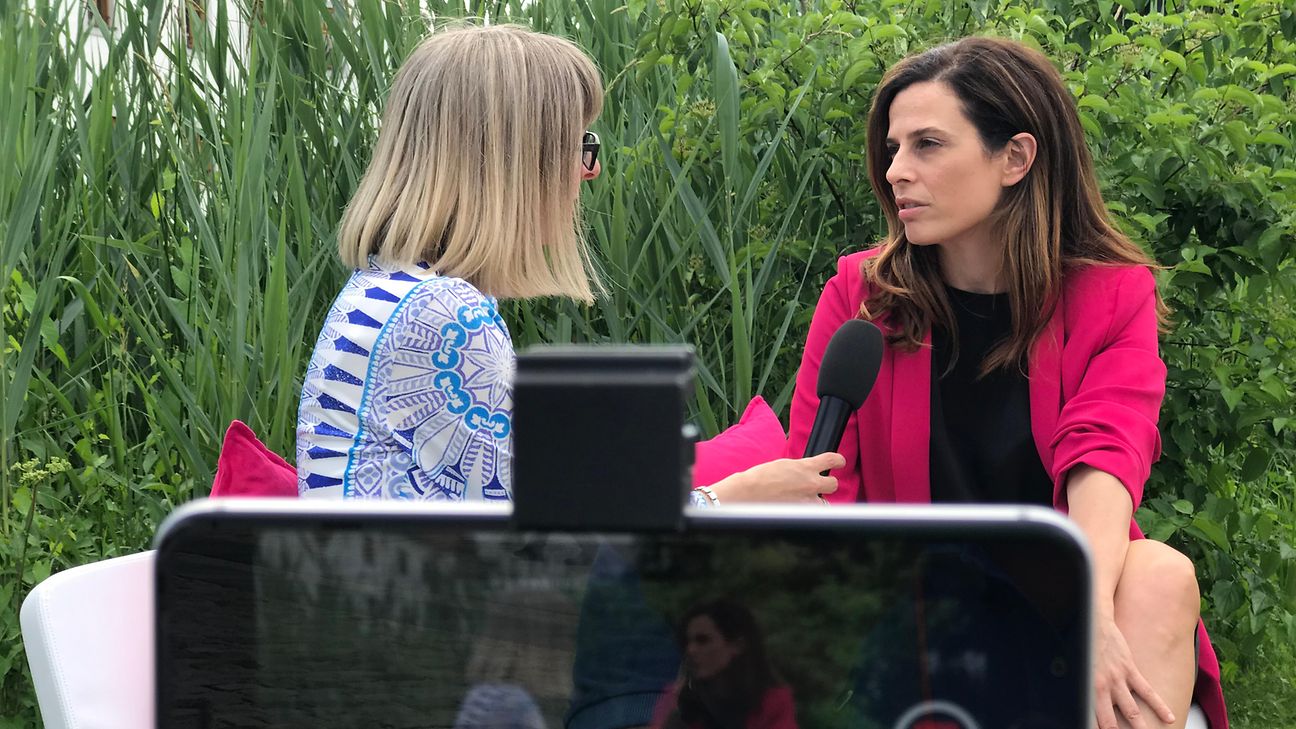

Video-Interview with Francesca Bria
Interview with Francesca Bria, Chief Technology and Digital Innovation Officer for the City of Barcelona, about the cities of tomorrow, democracy and involvement of the citizens.
Can you tell us what your biggest hope regarding digitization is?
Francesca Bria: My hope is that digitization is going to serve the people, so that we can put technology, artificial intelligence, data at the service of our citizens and we can make government more open, more collaborative and more transparent. So the hope is that digitization will serve the public.
And if you’re thinking in the opposite direction, what is your biggest fear?
Francesca Bria: The biggest fear is that digitization will end up in a dystopia. That there is no democratic control over technological infrastructures. And that people lose the ability to live in a democracy.
And bringing it to a very realistic and pragmatic approach, because you’re working for the City of Barcelona, so how does the perfect digital city of the future look like?
Francesca Bria: I don’t think there is one perfect city of the future. I think that cities are beautiful places because they are good for the people that live in it. I think a good digital city is a city that is shaped by its citizens, where citizens can select the priorities and can decide that they want to live with more affordable housing, with better air quality, with less pollution, with better public space, with better health care services. So it’s the cities that can provide better services to its citizens.
And then I think one of the big challenges for us is how to regain democratic control over data in particular. Because this is part of regaining trust and rethinking the relationship between citizens and government. So that citizens can trust the government and they can see cities as custodians of new digital rights, then also we can incentivize a better sharing data culture and we can work in partnerships. I think cities are great because they can create ecosystems, with companies, smaller companies, bigger companies, but also with research centers, with academia, with data journalists, and engage citizens themselves. And it’s this type of partnership that can lead us to create better networks of digital cities.
What are the biggest hurdles to bring this to real life?
Francesca Bria: I think changing big organizations is always really hard. So the core of a digital transformation is not a technological transformation. It’s an organizational change and a cultural change. So for instance what we’ve done in Barcelona is we’ve created a set of ethical digital standards for cities, where we codify policies around privacy, security and ethics by design, we codified clauses in public procurement contracts where citizens can regain the control over their data. We call them data sovereignty clauses.
We’ve changed the way to invest the public IT money in open source technology and free software. We are part of a campaign "Public Money, Public Code" and we’ve been working a lot with public officials to change the way to do for example, agile service development, to work in cross-functional teams, to learn what it means for them. You know, this digital transition but also to acquire new capabilities and new digital skills and education. So I think the big challenge is really transforming the public institutions to make it more open, more collaborative, more transparent, and more efficient. And I think for me I believe in public sector innovation and I think that if our institutions, public institutions, work better, then they can facilitate this digital transition throughout society. Not only for a specific industry or for specific companies but also to spread throughout society and generate the well-being that we need.
How can societies regain control, not only over digital technology, data and infrastructure but also over the services that are mediated by smart technologies like utilities, transportation, education, and health?
Francesca Bria: I think in cities it becomes very evident that data is like a new matter utility, that it fuels transport, health care services, education. Without data you cannot do ambitious policies regarding climate change, fight against climate change, you cannot do proper planning policies, you cannot target the question of affordable housing. So you need to regain control, democratic control over digital infrastructures and data to implement better data-driven services of the future. And so I think a big question really is about data sovereignty. How we can make sure that citizens themselves can decide what data they want to keep private, what data they want to share with whom and on what terms and we call this a new social pact on data.
I think to implement this vision of a more democratic and inclusive digital infrastructure for society we also need to invest in privacy announcing, de-centralizing, rights-preserving digital infrastructure that can enable civic participation and can enable political expression.
So I think it’s detrimental, for instance, to use big platforms that have as their core business model the manipulation and commercial exploitation of personal information and data to do political participation.
So in Barcelona we have created a platform that’s called "Decidim Barcelona" where we engage more than 400,000 citizens in shaping the city’s policy agenda and so we are running a large-scale participatory democracy movement which is a hybrid of online democracy and offline democracy. So we are trying as much as possible to really rethink this smart city to make it serve its people. So that this digital revolution can be a right for the many and not just a privilege for the few.
We are trying to move from a surveillance capitalist model where data is a commodity which is traded and owned by very few companies which have at the core of their business model the exploitation of personal information to a model where data is owned by citizens themselves, it’s controlled by them. It can become a public infrastructure that we can open up to the city’s ecosystem on top of which we can build data-driven services in health care, education, transportation and so on. So data as a public good and the digital infrastructure as a public good to improve the life of the citizens. And I think these are very different models. And I think we have a big challenge in front of us where Europe can step up and build a people-centric digital framework and a people-centric digital industry as well that puts privacy, ethics, and security of their citizens at the very core and the fundamental rights of citizens at the very core. And then we can build a digital society that’s more democratic and more inclusive.
This is the reason why together with New York City and Amsterdam we’ve created the "Cities Coalition for Digital Rights" which is a global coalition that is backed by UN Habitat, by UCLG which is the largest global network of cities and Euro cities where now over 40 cities are collaborating in creating a shared broad mark that’s based on citizens’ digital fundamental rights. And now we are extending this coalition to over 100 cities globally.
So I think the value of creating ethical digital cities and cities that work for their citizens is that cities can work in a network and we can create global alliances to make sure that the digital revolution is a more democratic revolution. So that’s what we are saying in Barcelona: There is no digital revolution without a democratic revolution.
That’s a great sentence! Thank you very much, Francesca!

